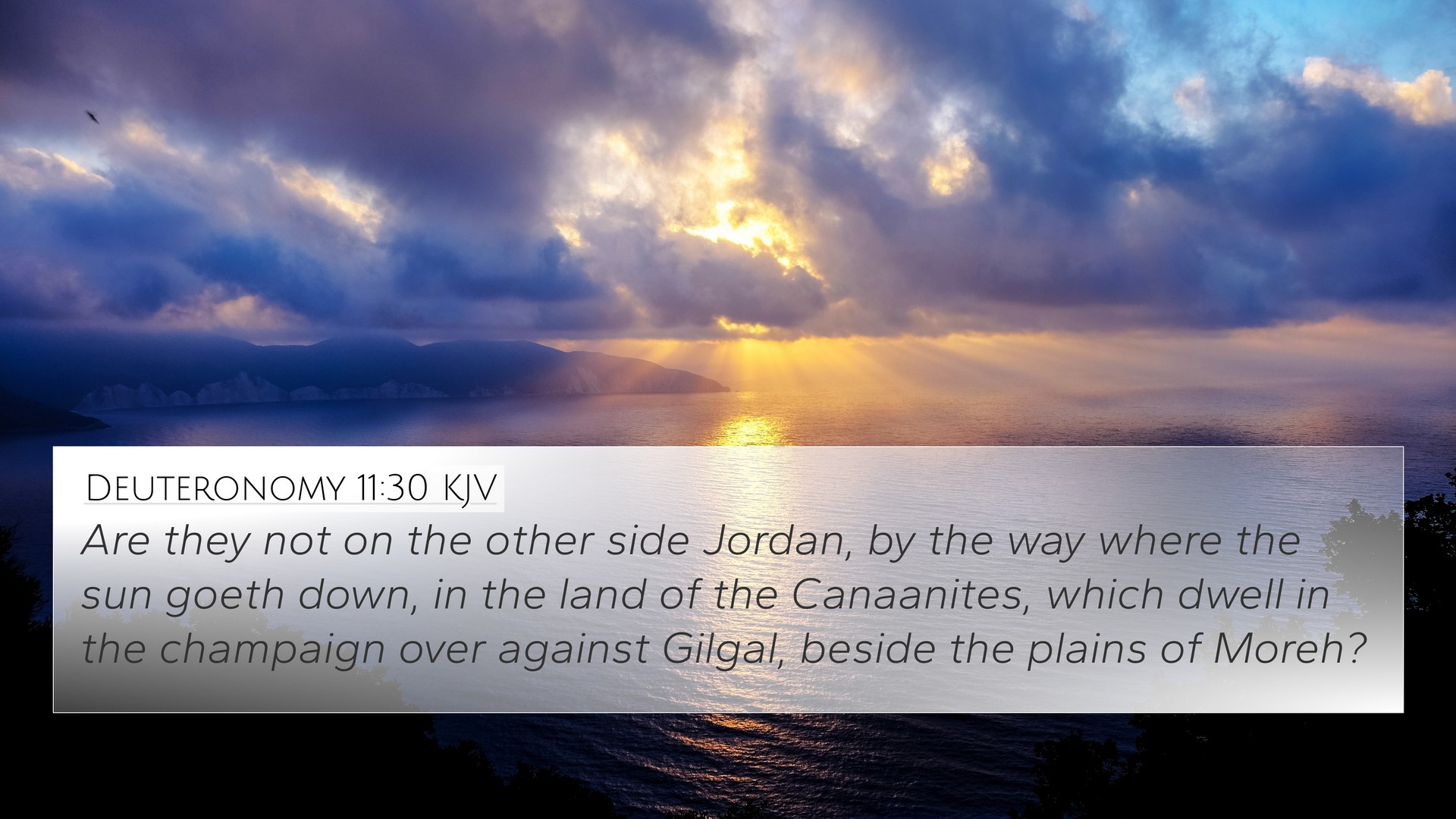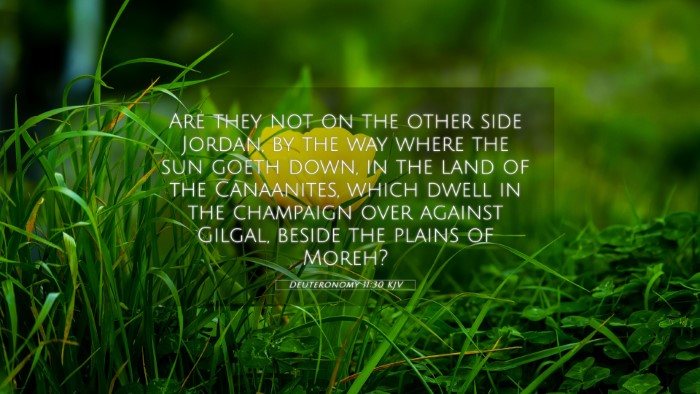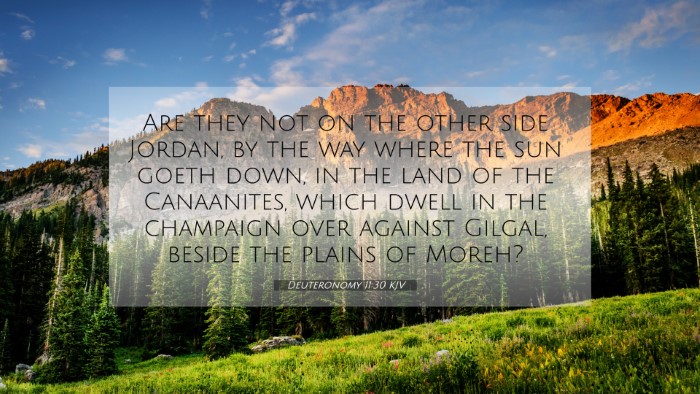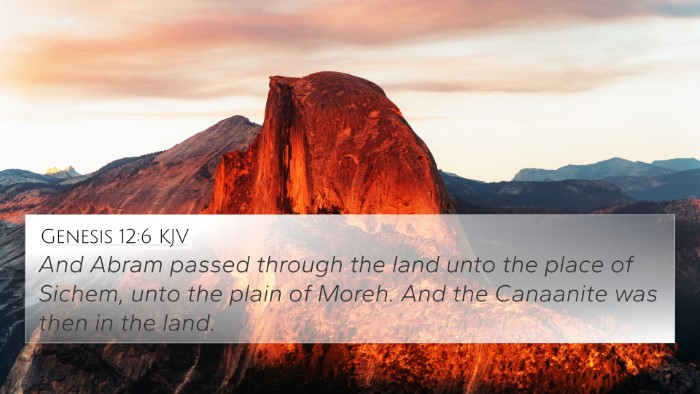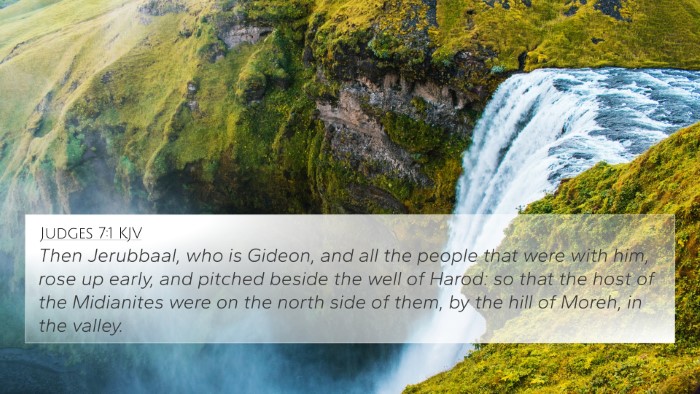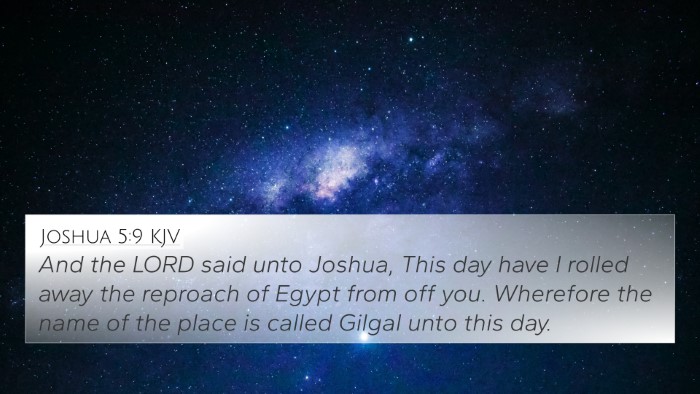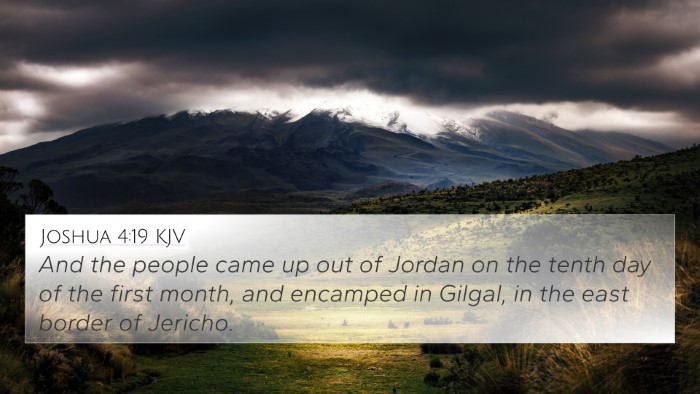Understanding Deuteronomy 11:30
Deuteronomy 11:30 states:
"Are they not on the other side Jordan, by the way where the sun goes down, in the land of the Canaanites, which dwell in the Champaign over against Gilgal?"
This verse speaks to the geographical setting and the context of the Israelites as they prepare to enter the Promised Land. It emphasizes the strategic importance of Gilgal and the contrast between their current location and the land they anticipate inhabiting.
Summary of Insights from Commentaries
Matthew Henry's Commentary
Matthew Henry highlights that this verse reflects the border locations pertinent to Israel's future conquests and settlements. He points out that the geography is not just mere detail; it showcases God's guidance and promise as the Israelites journey into Canaan. The mention of "where the sun goes down" symbolizes a transition not only in location but also in the spiritual journey of the Israelites, moving from wilderness to a land promised by God.
Albert Barnes' Commentary
Albert Barnes offers a more detailed view of the locations mentioned, framing Gilgal as a significant place for the Israelites, being the first encampment after crossing the Jordan River. Barnes suggests that the language evokes a sense of preparation and commitment to entering a new phase of divine fulfillment. This focus on geography underlines the connection between physical land and spiritual heritage for the Israelite people.
Adam Clarke's Commentary
Adam Clarke provides insight into the implications of this verse regarding the transition from leading a nomadic life to an agrarian society. He notes that it marks the significance of their entry into a land flowing with milk and honey. Clarke emphasizes the importance of understanding the land they are about to occupy, suggesting that the mention of the Canaanites serves as a reminder of the challenges ahead.
Cross-References for Deuteronomy 11:30
- Joshua 4:19-20: Discusses the Israelites' crossing of the Jordan and their encampment at Gilgal.
- Deuteronomy 3:27: Refers to Moses' view of the Promised Land from a distance and his understanding of the territory.
- Exodus 3:17: God's promise to bring the people out of Egypt into a land flowing with milk and honey.
- Jeremiah 1:14: God mentions the north country, correlating with Israel’s historical settings and challenges.
- Micah 7:14: Reflects on the land and promises made by God concerning Israel.
- Joshua 5:9: Refers to the rolling away of the reproach of Egypt at Gilgal.
- 1 Samuel 10:8: Connects to future events within the lands referenced in Deuteronomy.
- Matthew 5:5: "Blessed are the meek, for they shall inherit the earth," a verse that resonates with the concept of land inheritance.
- Romans 4:13: Highlights the promise of the land being tied to faith, a crucial thematic parallel.
- Hebrews 11:9-10: Discusses faith's role in inheritance and looking toward a city whose builder is God, tying into the overarching theme of promise and land.
Connections Between Bible Verses
Deuteronomy 11:30 serves to link the historical and current geographical realities of the Israelites with God's deeper spiritual promises. The connections between this verse and others highlight:
- Thematic consistencies of divine promise across the Old and New Testaments.
- Inter-Biblical dialogue regarding the land as a place of God’s blessing and challenge.
- Comparative studies on Israel's journey and the believer's journey today.
The Importance of Cross-Referencing Biblical Texts
Understanding Deuteronomy 11:30 is enhanced when we employ tools for Bible cross-referencing. By exploring connections between Bible verses, we can better appreciate:
- The contextual continuity of God's promises.
- The fulfillment of those promises in the New Testament.
- The overarching narrative of redemption in Scripture.
When using a Bible concordance or other reference guide, one can identify how themes of inheritance, land, and divine assurance interweave across various books of the Bible. This can enrich personal Bible study, sermon preparation, and understanding of theological concepts.
Conclusion
In conclusion, Deuteronomy 11:30 invites not just an isolated study but a thorough comparative analysis across the entirety of the Scriptures. By engaging in cross-referencing and identifying connections through Scriptural dialogue, we uncover a richer, more layered understanding of God's promises and the faithful journey of His people. Embracing these connections supports spiritual growth and a deeper grasp of one's faith journey.
